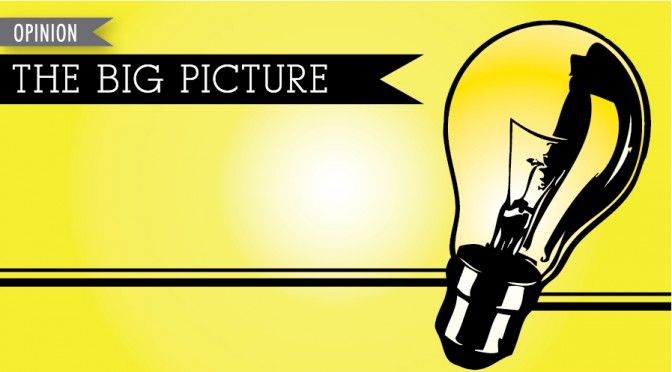
Reflecting on identity outside the box
By: Annie Sragner, Arts & Life Editor
One of my least favorite questions to be asked by friends and family whom I haven’t seen in a while is the dreaded, “so how ARE you?”
I dislike this question because it puts me on the spot to come up with a way to summarize my current circumstances and identity.
Another strange aspect is that if I were asked how someone else I know is doing I could easily come up with a small list of their updates.
It’s an interesting phenomenon that we often find ourselves more familiar with the identities of others than we are with our own. It can be difficult to assess one’s own identity while living in it.
Society values identities because they are based on the categorization of people. Categories create our comfort zones and satiate our thirsts for inclusion, so those with secure identities often feel safe within their beliefs. This is why communities grow from the accumulation of like-minded individuals with similar beliefs and life practices.
To keep track of everyone, we use census data to document what kinds of people live where. It’s bizarre that the intricate and complex components of one’s identity can be easily summarized onto a single form, saturated with checkboxes and blanks to fill.
Although they have benevolent intent, the effects of these boxes and blanks ripple past the pages we fill out. For example, forms that only have checkboxes for “male” and “female” don’t take other possible sexes or identities into account. Individuals are either grouped in these exclusive categories, or they are exiled with a label of “other.”
These social identity groups also apply to gender, race, ethnicity, sexual orientation, religion, class, age, ability, citizenship and body size – just to name a few. There are the popular groups within these categories which most people fit into, but the ones in-between are left just that: in-between.
These categories give us common experiences to share with others. Those who do not fit these set categories are often silenced by their inability to conform, but these individuals have valuable experiences that deserve to be heard. Those who live in unconventional ways in this conventional society have the power to challenge the cultural traditions most people just accept.
Even if you find comfort within the boxes you check, the exclusion of some affects all. Consider how much your identity has determined your inclusion or exclusion from certain aspects of culture and how much of that is based on traits you have no control over.

